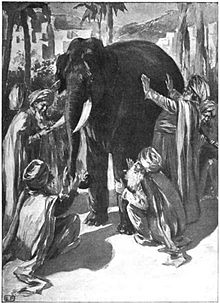....
This phenomenon doesn't stem from malice by journalists. Rather, it is a reflection that they are experts in journalism, not necessarily the things they are writing about. It takes years to truly understand an esoteric field like nuclear power (or, today, epidemiology and virology), but they have a deadline to publish. And, to be honest, boring doesn't sell newspapers. ...
Apology accepted!
Another issue for journalists is that you are trained in journalism, not your subject matter. I see mistakes journalists make in reporting in the medical field. It cannot be helped. But if a journalist specializes in an area for a career, perhaps they could obtain additional education in their area of specialty. ...
Journalists may be encouraged to sensationalize stories to get more eyes on the story. ...
I agree with much of what you wrote, but I'm not willing to give journalists a pass as much as you are.
It's their job to take a complex subject, and make it approachable. That may be near impossible for some topics, then just admit it, and break it down to whatever level is possible. But a good journalist will work with the experts to make sure what they are reporting is not misleading. Few seem to do that.
You don't need to be an expert in the field, you need to be an expert at condescending information and making it accessible, with the help of your expert sources. I think
that is called "journalism".
I won't give them a pass because they have a deadline, or have to draw clicks. Do you give a car mechanic, or a plumber, or an electrician a pass for sloppy work, because they didn't have time or couldn't make money for doing it right?
And to top it off the "press" holds themselves up on a pedestal, claiming 1st amendment rights, and so on. They are a bit full of themselves, IMO.
As a retired EE, people will ask me technical questions. It takes a bit of effort, but it's not impossible to scale the reply to the knowledge the person has. And sometimes the answer really is, "It's not something you are really going to understand without a fairly deep knowledge of electronics. But I can tell you this...".
There's no point in giving info they won't understand, and it would be wrong to give them false info just to appease them. The press should be held to that standard as well.
-ERD50


